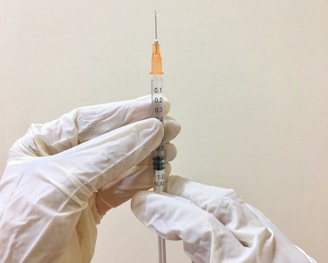Comprehensive Guide to Finding Doctors That Prescribe Suboxone Near Me
Introduction
Opioid addiction is a pressing health crisis that has taken a toll on countless individuals and families. In response to this epidemic, treatments like Suboxone have emerged as essential tools in the fight against opioid dependency. Suboxone, a combination of buprenorphine and naloxone, is a highly effective medication-assisted treatment (MAT) designed to help those struggling with opioid addiction achieve and maintain sobriety. This comprehensive guide will explore the importance of Suboxone treatment, how to find doctors that prescribe Suboxone near you, and the benefits of integrating this treatment into your recovery journey.
Understanding Suboxone and Its Role in Opioid Addiction Treatment
What is Suboxone?
Suboxone is a medication that combines two active ingredients: buprenorphine and naloxone. Buprenorphine is a partial opioid agonist, which means it binds to opioid receptors in the brain but activates them less intensely than full agonists like heroin or oxycodone. This action helps to reduce cravings and withdrawal symptoms without producing the same high. Naloxone is an opioid antagonist that blocks the effects of opioids, making it difficult to misuse Suboxone.
How Does Suboxone Work?
Suboxone works by stabilizing the brain’s chemistry and reducing the physical dependency on opioids. When taken as prescribed, it can:
Alleviate Withdrawal Symptoms: Suboxone helps manage the uncomfortable and often severe withdrawal symptoms that accompany opioid cessation.
Reduce Cravings: By partially activating opioid receptors, Suboxone diminishes the intense cravings that often lead to relapse.
Prevent Misuse: The naloxone component discourages misuse by precipitating withdrawal symptoms if the medication is injected.
The Importance of Medication-Assisted Treatment (MAT)
Medication-assisted treatment, including Suboxone, is a cornerstone of effective opioid addiction therapy. MAT combines medication with counseling and behavioral therapies to provide a holistic approach to treatment. Research has shown that MAT significantly improves outcomes, helping individuals achieve long-term recovery and reduce the risk of overdose.
Finding Doctors That Prescribe Suboxone Near Me
Why It's Important to Find a Qualified Suboxone Doctor
Choosing the right healthcare provider is crucial for successful Suboxone treatment. A qualified Suboxone doctor will have specialized training and experience in managing opioid addiction and be able to provide comprehensive care that addresses both the physical and psychological aspects of addiction.
Steps to Finding a Suboxone Doctor
Use Online Directories and Resources
Several online directories can help you find Suboxone-prescribing doctors in your area. Websites like SAMHSA’s Buprenorphine Treatment Physician Locator and the American Society of Addiction Medicine (ASAM) directory offer searchable databases of qualified providers.
Consult Your Primary Care Physician
Your primary care physician can be a valuable resource in finding a Suboxone doctor. They may be able to refer you to a trusted specialist or provide recommendations based on your medical history and specific needs.
Check with Local Clinics and Hospitals
Many local clinics and hospitals have addiction treatment programs that include Suboxone. Contacting these facilities directly can provide you with information on available services and how to access them.
Insurance Provider Directories
Your health insurance provider may have a directory of in-network Suboxone doctors. Checking with your insurance company can help you find a provider that is covered under your plan, reducing out-of-pocket costs.
Online Reviews and Testimonials
Reading online reviews and testimonials from other patients can give you insights into the quality of care provided by different doctors. Look for providers with positive feedback regarding their expertise, compassion, and effectiveness in treating opioid addiction.
Questions to Ask a Prospective Suboxone Doctor
When selecting a Suboxone doctor, it’s important to ask questions that will help you gauge their experience and approach to treatment. Consider asking:
What is your experience in treating opioid addiction?
How long have you been prescribing Suboxone?
What is your treatment philosophy?
What additional services do you offer (e.g., counseling, support groups)?
How do you monitor and adjust treatment plans?
Telemedicine and Online Suboxone Clinics
With the advent of telemedicine, accessing Suboxone treatment has become more convenient. Many providers now offer virtual consultations and prescriptions, allowing you to receive care from the comfort of your home. This can be particularly beneficial for individuals in remote areas or those with mobility issues.
Benefits of Suboxone Treatment
Improved Quality of Life
Suboxone treatment can dramatically improve the quality of life for individuals struggling with opioid addiction. By reducing cravings and withdrawal symptoms, Suboxone allows patients to focus on rebuilding their lives, improving relationships, and achieving personal and professional goals.
Reduced Risk of Overdose
One of the most significant benefits of Suboxone is its ability to reduce the risk of opioid overdose. By stabilizing the brain’s chemistry and preventing misuse, Suboxone lowers the likelihood of relapse and accidental overdose.
Enhanced Stability and Functionality
Suboxone treatment can help individuals regain stability and functionality in their daily lives. Many patients report improved physical health, mental clarity, and emotional well-being after starting Suboxone therapy.
Supportive and Comprehensive Care
Suboxone treatment is often part of a broader, more comprehensive treatment plan that includes counseling, behavioral therapies, and support groups. This holistic approach addresses the underlying causes of addiction and equips individuals with the tools and strategies needed for long-term recovery.
Challenges and Considerations in Suboxone Treatment
Potential Side Effects
Like any medication, Suboxone can cause side effects. Common side effects include:
Headache
Nausea
Constipation
Sweating
Insomnia
While these side effects are generally mild, it’s important to discuss any concerns with your doctor, who can adjust your dosage or suggest remedies to alleviate discomfort.
Stigma and Misconceptions
Despite its effectiveness, Suboxone treatment is sometimes stigmatized. Some people mistakenly believe that using medication to treat addiction is merely substituting one addiction for another. It’s crucial to educate yourself and others about the scientific evidence supporting MAT and its role in recovery.
Commitment to Treatment
Successful Suboxone treatment requires a commitment to following your doctor’s instructions and attending regular appointments. Adherence to the prescribed regimen is essential for achieving the desired outcomes and preventing relapse.
Risk of Dependence
While Suboxone itself has a lower risk of abuse compared to other opioids, it can still be habit-forming if not used as directed. Close monitoring by a healthcare provider ensures that the medication is used safely and effectively.
Integrating Suboxone into a Comprehensive Recovery Plan
Counseling and Behavioral Therapies
To maximize the benefits of Suboxone treatment, it’s important to integrate it with counseling and behavioral therapies. These therapies help address the psychological aspects of addiction, develop coping strategies, and foster resilience. Common approaches include:
Cognitive-Behavioral Therapy (CBT): This therapy focuses on identifying and changing negative thought patterns and behaviors.
Motivational Interviewing (MI): MI helps individuals find internal motivation for change and develop a commitment to recovery.
Group Therapy: Participating in group therapy provides support, reduces isolation, and fosters a sense of community.
Support Groups
Support groups, such as Narcotics Anonymous (NA) or SMART Recovery, offer peer support and a sense of belonging. Sharing experiences and learning from others in recovery can be incredibly empowering and motivating.
Lifestyle Changes
Making positive lifestyle changes can support your recovery and enhance your overall well-being. Consider incorporating:
Regular Exercise: Physical activity can improve mood, reduce stress, and enhance physical health.
Healthy Diet: Eating a balanced diet supports overall health and can help manage cravings and mood swings.
Mindfulness and Meditation: Practicing mindfulness and meditation can reduce stress, improve focus, and promote emotional regulation.
Long-Term Follow-Up
Long-term follow-up and aftercare are essential components of a successful recovery plan. Regular check-ins with your healthcare provider, continued participation in therapy, and involvement in support groups help maintain sobriety and address any emerging challenges.
Case Studies: Success Stories of Suboxone Treatment
John's Journey to Recovery
John, a 35-year-old father of two, struggled with opioid addiction for over a decade. Despite multiple attempts at detox and rehabilitation, he faced constant relapse. When John started Suboxone treatment, he experienced a significant reduction in cravings and withdrawal symptoms. Coupled with regular counseling sessions, John gradually rebuilt his life, reconnected with his family, and secured stable employment. Today, John celebrates three years of sobriety and continues to advocate for MAT as a viable solution for opioid addiction.
Sarah's Path to Stability
Sarah, a 28-year-old artist, found herself in the grips of opioid addiction after a sports injury led to prolonged use of prescription painkillers. Her addiction escalated, affecting her career and personal relationships. Through the support of a compassionate Suboxone doctor and participation in group therapy, Sarah regained control of her life. The stability provided by Suboxone allowed her to focus on her art and heal emotionally. Sarah is now an active member of her local recovery community, inspiring others with her story.
Addressing Common Concerns and Myths About Suboxone
Myth: Suboxone is Just Replacing One Addiction with Another
Fact: Suboxone is a carefully regulated medication that helps manage addiction, not replace it. The medication stabilizes the brain’s chemistry, allowing individuals to function normally without the highs and lows associated with opioid misuse.
Myth: You Can't Achieve True Sobriety with Suboxone
Fact: True sobriety is about regaining control over one’s life, not just abstinence from substances. Suboxone helps individuals achieve and maintain sobriety by reducing cravings and withdrawal symptoms, enabling them to focus on their recovery journey.
Myth: Suboxone Treatment is Only for Severe Cases
Fact: Suboxone can be beneficial for individuals at various stages of opioid addiction. Early intervention with Suboxone can prevent the escalation of addiction and improve long-term outcomes.
Myth: Suboxone is Dangerous and Addictive
Fact: When used as prescribed and under medical supervision, Suboxone is a safe and effective treatment for opioid addiction. The risk of addiction to Suboxone is significantly lower than the risk associated with untreated opioid addiction.
The Future of Suboxone Treatment and Opioid Addiction Recovery
Advances in Medication-Assisted Treatment
The field of medication-assisted treatment continues to evolve, with ongoing research aimed at improving existing medications and developing new ones. Innovations in MAT hold promise for enhancing the effectiveness and accessibility of addiction treatment.
Expanding Access to Care
Efforts to expand access to Suboxone treatment, particularly through telemedicine and community-based programs, are critical in addressing the opioid epidemic. Increasing the availability of qualified providers and reducing barriers to treatment can help more individuals receive the care they need.
Public Awareness and Education
Raising public awareness about the benefits of Suboxone and MAT is essential in combating stigma and misconceptions. Education campaigns and advocacy efforts can foster a more supportive environment for individuals seeking treatment.
Conclusion
Finding doctors that prescribe Suboxone near you is a vital step towards overcoming opioid addiction and reclaiming your life. Suboxone, as part of a comprehensive treatment plan, offers hope and stability for those struggling with addiction. By utilizing available resources, asking the right questions, and committing to a holistic recovery plan, you can embark on a journey towards lasting sobriety and improved well-being. Remember, recovery is possible, and seeking help is the first and most important step.


